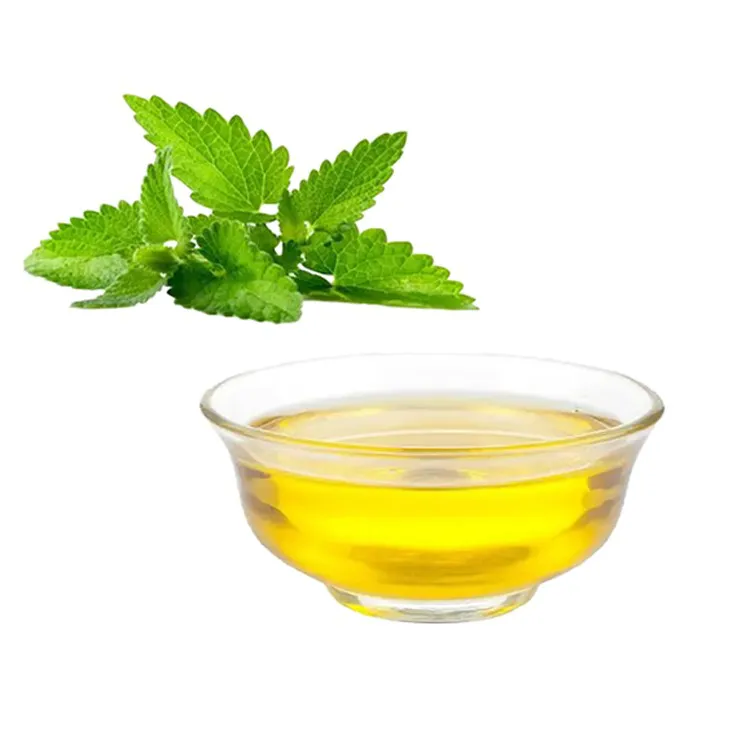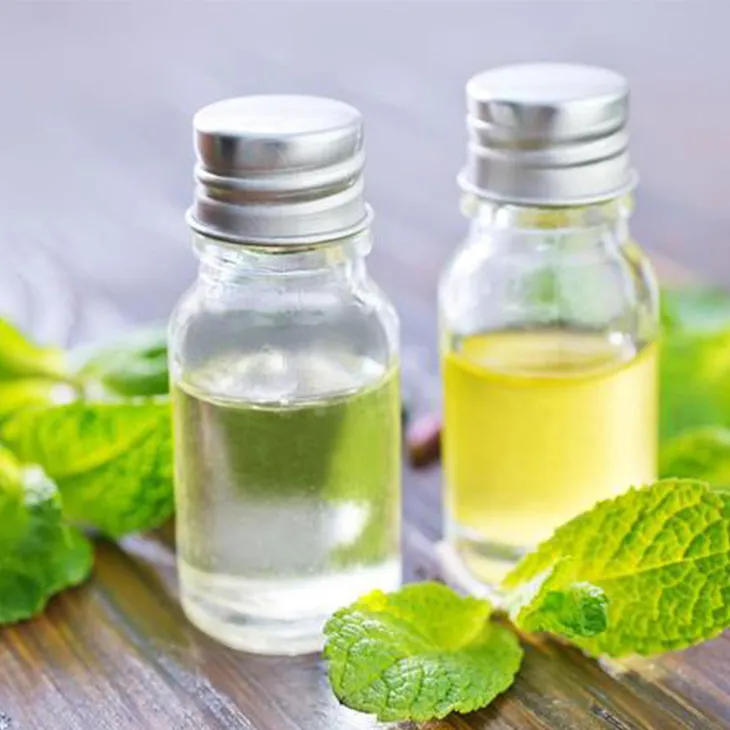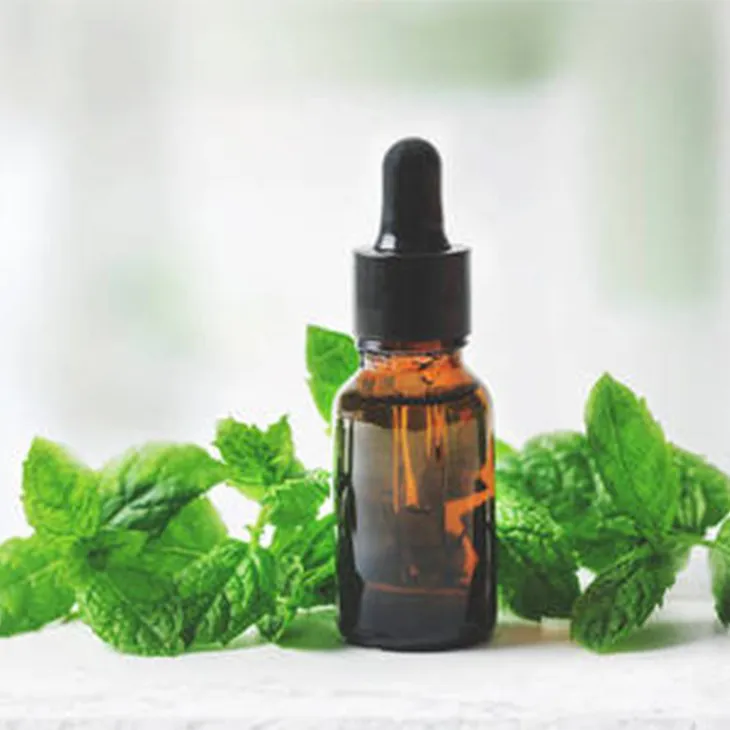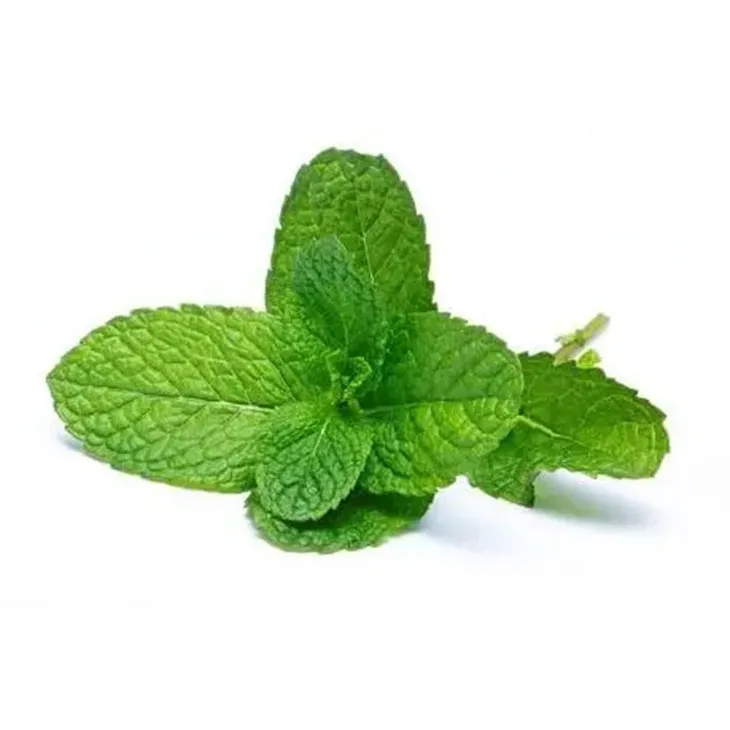- 0086-571-85302990
- sales@greenskybio.com
Active components of peppermint oil.
2024-12-01

Introduction
Peppermint Oil has been widely used for centuries due to its numerous beneficial properties. These properties are mainly attributed to its active components. Menthol, menthyl acetate, and limonene are among the most important active ingredients in Peppermint Oil, each playing a unique role in making Peppermint Oil a highly versatile substance.

Menthol: The Cooling Agent
Menthol is perhaps the most well - known component of peppermint oil. It is responsible for the characteristic cool feeling associated with peppermint.
Mechanism of Cooling Sensation
Menthol activates the cold - sensitive receptors in the skin and mucous membranes. When applied or consumed, it tricks the body into perceiving a cooling effect. This occurs because menthol molecules interact with the TRPM8 receptors, which are typically activated by cold temperatures. As a result, the brain receives signals that are interpreted as a cooling sensation.
Uses in Oral Care Products
In products like toothpaste and mouthwash, menthol is a very popular ingredient.
- It provides a fresh and clean feeling in the mouth. After brushing teeth with mint - flavored toothpaste or using mint mouthwash, the coolness left by menthol gives the user a sense of having a thoroughly clean mouth.
- Menthol also has some antibacterial properties, which can help in reducing the growth of certain bacteria in the oral cavity. This contributes to better oral hygiene and can prevent problems such as bad breath, cavities, and gum diseases.
Other Applications
Beyond oral care, menthol has a wide range of applications.
- It is used in topical pain relief products. When applied to the skin, the cooling sensation can help to numb the area and provide relief from minor aches and pains, such as muscle soreness or headaches. Many over - the - counter pain relief balms and gels contain menthol for this purpose.
- In the field of respiratory health, menthol - based products like cough drops and inhalers are used. The cooling effect can soothe the irritated throat and airways, and menthol may also have some mild decongestant properties, helping to relieve nasal congestion.

Menthyl Acetate: The Aroma Contributor
Menthyl acetate is another important active component in peppermint oil.
Unique Aroma Profile
Menthyl acetate has a distinct fruity and minty aroma. This aroma adds to the overall olfactory experience of peppermint oil. When compared to menthol, which is mainly responsible for the cooling sensation, menthyl acetate gives peppermint oil its pleasant and recognizable smell.
Enhancing the Sensory Appeal
In various products, menthyl acetate plays a crucial role in enhancing the sensory appeal.
- In the food and beverage industry, it is used as a flavoring agent. The fruity - minty aroma of menthyl acetate can enhance the taste of mint - flavored products such as candies, chewing gums, and herbal teas. It gives these products a more complex and appealing flavor profile.
- In the perfume and fragrance industry, menthyl acetate can be used as a top note. Its fresh and light aroma can create an initial burst of freshness in a perfume composition, attracting the attention of the wearer and those around them.
Preservative - like Qualities
Menthyl acetate also exhibits some preservative - like qualities.
- It can help to prevent the growth of certain microorganisms. Although it may not be as potent as traditional preservatives, in combination with other natural preservatives or in products with a short shelf - life, menthyl acetate can contribute to product stability.
- By inhibiting the growth of spoilage - causing organisms, menthyl acetate can help to maintain the quality and freshness of products. For example, in some natural cosmetic products or food items with a limited amount of added preservatives, menthyl acetate can play a role in prolonging their usability.

Limonene: The Antioxidant Booster
Limonene, a terpene found in peppermint oil, is another significant active ingredient.
Antioxidant Capacity
Limonene contributes to the antioxidant capacity of peppermint oil. Antioxidants are important because they can neutralize free radicals in the body. Free radicals are unstable molecules that can cause damage to cells, leading to various health problems such as aging, inflammation, and certain diseases. By scavenging free radicals, limonene helps to protect the body's cells and tissues.
Potential Health Benefits
The antioxidant properties of limonene are associated with several potential health benefits.
- It may have anti - inflammatory effects. Inflammation is a common underlying factor in many chronic diseases, and by reducing inflammation, limonene could potentially play a role in preventing or managing conditions such as arthritis, heart disease, and certain types of cancer.
- Limonene may also support the immune system. A healthy immune system is crucial for defending the body against infections and diseases. By protecting cells from oxidative stress, limonene can help to maintain the proper functioning of the immune system.
Uses in Different Industries
Limonene has applications in various industries.
- In the food industry, it can be used as a natural flavor enhancer. Its citrus - like aroma can add a fresh and pleasant note to food products. Additionally, its antioxidant properties can help to preserve the quality of food, especially in products with a high fat content where oxidation is a concern.
- In the cleaning products industry, limonene is used as a natural solvent. It can dissolve grease and dirt effectively, making it a popular ingredient in environmentally - friendly cleaning products. Moreover, its pleasant smell can also mask the unpleasant odors often associated with cleaning agents.

Synergistic Effects of Active Components
The active components in peppermint oil, namely menthol, menthyl acetate, and limonene, work together in a synergistic manner.
In the Culinary World
- Menthol provides the cool and refreshing taste, menthyl acetate adds the fruity - minty aroma, and limonene contributes its antioxidant and flavor - enhancing properties. Together, they make peppermint oil a popular flavoring agent in cooking and baking. It can be used in a variety of dishes, from desserts like mint ice cream to savory dishes where a touch of mint can add a unique flavor dimension.
In the Health Care Field
- For digestive aids, menthol can help to soothe the digestive tract, menthyl acetate may contribute to the overall palatability of mint - based digestive remedies, and limonene's antioxidant and anti - inflammatory properties can potentially support the overall health of the digestive system. In stress relief, the cooling effect of menthol can have a relaxing effect on the body, while the pleasant aroma of menthyl acetate can have a calming effect on the mind, and limonene may play a role in reducing stress - related inflammation.
In the Beauty Industry
- For skin care, menthol can give a cooling and refreshing feeling, which can be especially beneficial for irritated or inflamed skin. Menthyl acetate can add a pleasant scent to skin care products, and limonene's antioxidant properties can help to protect the skin from environmental damage. In hair care, peppermint oil can stimulate the scalp, with menthol providing the tingly sensation, menthyl acetate adding a nice smell, and limonene potentially promoting a healthy scalp environment due to its antioxidant and anti - inflammatory properties.
Conclusion
Peppermint oil's active components, menthol, menthyl acetate, and limonene, each bring unique properties to the table. Their combined effects make peppermint oil a valuable and versatile substance. Whether it is in the culinary world, health care, or beauty industry, peppermint oil continues to be widely used and studied for its numerous benefits. As research continues, we may discover even more applications and benefits associated with these active components and peppermint oil as a whole.
FAQ:
What are the main active components in peppermint oil?
The main active components in peppermint oil are menthol, menthyl acetate, and limonene. Menthol gives the characteristic cool feeling. Menthyl acetate has a fruity and minty aroma and some preservative - like qualities. Limonene is a terpene that contributes to the antioxidant capacity.
Why is menthol an important component in peppermint oil?
Menthol is important because it gives peppermint oil its characteristic cool feeling. This makes it useful in products like toothpaste and mouthwash to provide a fresh and clean sensation.
What role does menthyl acetate play in peppermint oil?
Menthyl acetate has a fruity and minty aroma which enhances the overall olfactory experience of peppermint oil. It also has some preservative - like qualities.
How does limonene contribute to peppermint oil?
Limonene is a terpene in peppermint oil that contributes to its antioxidant capacity.
Why is peppermint oil popular in the culinary world?
Peppermint oil is popular in the culinary world because its active ingredients work together to create a unique flavor. These ingredients include menthol, menthyl acetate, and limonene.
Related literature
- The Chemical Composition and Biological Activities of Peppermint Oil"
- "Analysis of Active Components in Peppermint Oil: A Comprehensive Review"
- "Peppermint Oil: Unraveling the Functions of Its Active Ingredients"
- ▶ Hesperidin
- ▶ Citrus Bioflavonoids
- ▶ Plant Extract
- ▶ lycopene
- ▶ Diosmin
- ▶ Grape seed extract
- ▶ Sea buckthorn Juice Powder
- ▶ Fruit Juice Powder
- ▶ Hops Extract
- ▶ Artichoke Extract
- ▶ Mushroom extract
- ▶ Astaxanthin
- ▶ Green Tea Extract
- ▶ Curcumin
- ▶ Horse Chestnut Extract
- ▶ Other Product
- ▶ Boswellia Serrata Extract
- ▶ Resveratrol
- ▶ Marigold Extract
- ▶ Grape Leaf Extract
- ▶ New Product
- ▶ Aminolevulinic acid
- ▶ Cranberry Extract
- ▶ Red Yeast Rice
- ▶ Red Wine Extract
-
Saffron Extract Powder
2024-12-01
-
Curcuma Longa Extract
2024-12-01
-
Red Vine Extract
2024-12-01
-
Epimedium extract powder
2024-12-01
-
Tamarind extract powder
2024-12-01
-
Medicinal Marshmallow Extract
2024-12-01
-
Hawthorn Extract
2024-12-01
-
Astaxanthin
2024-12-01
-
Chaste Berry Extract
2024-12-01
-
melatonin extract
2024-12-01





















